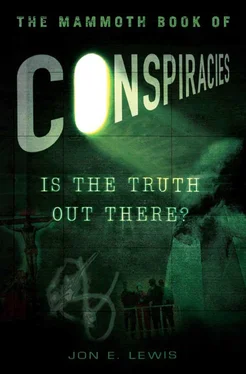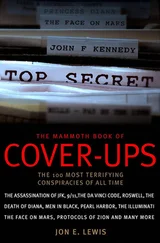In other words, he had had a nice trip to Europe with his family, for 9 months, and he said that that cost plenty, too.
The CHAIRMAN. Did you have any further talks with him?
General BUTLER. NO. The only other time I saw or heard from him was when I wanted Paul to uncover him. He talked to me and he telephoned Paul, saying he wanted to see him. He called me up and asked if Paul was a reputable person, and I said he was. That is the last thing I heard from him.
The CHAIRMAN. The last talk you had with MacGuire was in the Bellevue in August of this year?
General BUTLER. August 22; yes. The date can be identified,
The CHAIRMAN. We thank you, General Butler, for coming here this morning.
The Soviet KGB surreptitiously assassinate a British political leader so their man can replace him and eventually end up in 10 Downing Street.
It’s a scenario that thriller writer John le Carré might hesitate to use for his Smiley novels, yet it is exactly what some in MI5 believed happened in Britain in 1963, when Hugh Gaitskell suddenly resigned as leader of the Labour Party and died shortly afterwards from a baffling illness. Taking over from Gaitskell was Harold Wilson, about whom MI5 had long held the deepest suspicions.
A brilliant economist, Wilson had been at Oxford University in the thirties which was almost enough evidence of his being a red-under-the-bed in itself, since this had been the time and place that the KGB had recruited a host of spies. But what really alarmed MI5 was Wilson’s post-Second World War role as a junior trade minister, when he became the cheerleader for more commerce with the USSR. A 1947 visit to Moscow by Comrade Harold was rumoured to have entrapped him in a “honey pot”, after which he was most definitely the KGB’s man. Then there was Gaitskell’s curious demise; his doctor is said to have approached MI5 with concerns about the responsible disease, lupus disseminata, which was hardly known in the UK. Gaitskell had just come back from the USSR. Information filtered through to MI5 from Russian defector Anatoli Golitsin that the KGB’s Assassination Department 13 had killed a European leader and installed their man in his place. According to Peter Wright, former deputy director of MI5, in his autobiography Spycatcher , the strange death of Gaitskell added to Golitsin’s rumour equalled a certainty that Wilson was a Moscow mole. The context and the timing was right too; the ruling Conservative Party was imploding in the aftermath of the Profumo affair, and Labour was a shoo-in for winning the General Election.
Was Wilsonski a double-agent, even the Fifth Man in the spy ring that included Philby, Burgess, Maclean and Blunt? Certainly sections of MI5 believed so and put him under surveillance. More, as detailed in Wright’s Spycatcher tome, they then set about conspiring to remove Wilson from Downing Street, steadily dripping snippets of “black propaganda” to the press, in particular the satirical/investigative magazine Private Eye , about Wilson’s “Communism” and his supposed dalliance with his secretary Marcia Williams. According to Colin Wallace, an intelligence officer with the British Army’s Information Policy Unit in Northern Ireland, he was asked to cooperate in this smearing campaign against Wilson, known to MI5 insiders as “Clockwork Orange”. (When Wallace refused to cooperate with the “unconstitutional” Clockwork Orange plot, he was framed for manslaughter, a case highlighted by journalist Paul Foot in Who Framed Colin Wallace ?) MI5 was additionally alleged to have worked with the Conservative Party to bring about Wilson’s downfall. Wilson himself became border-edge paranoid about the “dark forces” gathering against him; later, on his retirement, he would accuse Lord Mountbatten, Admiral of the Fleet and Prince Philip’s uncle, of having plotted a coup d’état in 1968.
Wilson’s delusional character—it was said of him that he made Walter Mitty look unimaginative—make some of his claims of “subversion from the right” difficult to take seriously, while Wright’s Spycatcher is more colourful than reliable (by the author’s own admission). An official government report MI5: The Security Service found that “no such plot [against Wilson] had ever existed”. But they would say that, wouldn’t they?
There is small doubt that some in MI5, with a little judicious outsourcing to Army and Conservative Party allies, sought by illegal means to bring down the elected prime minister of Britain. What is harder to determine is whether Wilson himself was actually a Soviet stooge. Golitsin’s accusation holds no water; the defector had been briefing the CIA/MI5 for a decade before discovering, ooops!, he had forgotten to mention the biggest secret of all, Britain’s PM is Moscow’s man. More likely, given he was paid for information, he felt the need to invent some good material. The claim of Oleg Lyalin, a KGB defector, is marginally damning: Joseph Kagan, Wilson’s friend and financier, regularly met agents from the Czech secret service. Most troubling of all is Wilson’s resignation. Forty years after the event, no one has ever put forward a convincing reason why Wilson suddenly quit as PM just after starting his fourth term in office. And at the relatively sprightly age of 60.
“Tiredness” was the official stated reason. Meanwhile, the rumour mill energetically cranked out the word that Wilsonski had been obliged to step down because of incriminating evidence against him.
Harold Wilson is that rare thing in conspiracy theory, an alleged conspirator, an alleged conspiratee. Predator and victim.

Further Reading
Paul Foot, Who Framed Colin Wallace? , 1990
Ben Pimlott, Harold Wilson , 1992
Peter Wright, Spycatcher: The Candid Autobiography of a Senior Intelligence Officer , 1987
Other titles by Jon E. Lewis
The Mammoth Book of Antarctic Journeys
The Mammoth Book of Cover-Ups
The Mammoth Book of Native Americans
The Mammoth Book of How It Happened
The Mammoth Book of On the Edge
The Mammoth Book of Pirates
The Mammoth Book of True War Stories
The Mammoth Book of Wild Journeys
London: The Autobiography
Rome: The Autobiography
World War II: The Autobiography
Survivor: The Autobiography
SAS: The Autobiography
Spitfire: The Autobiography
Constable & Robinson Ltd
55–56 Russell Square
London WC1B 4HP
www.constablerobinson.com
First published in the UK by Robinson,
an imprint of Constable & Robinson Ltd, 2012
Copyright © J. Lewis-Stempel, 2012
The right of Jon E. Lewis to be identified as the author of this work has been asserted by him in accordance with the Copyright, Designs & Patents Act 1988.
All rights reserved. This book is sold subject to the condition that it shall not, by way of trade or otherwise, be lent, re-sold, hired out or otherwise circulated in any form of binding or cover other than that in which it is published and without a similar condition including this condition being imposed on the subsequent purchaser.
A copy of the British Library Cataloguing in Publication
Data is available from the British Library
UK ISBN: 978-1-84901-363-5 (paperback)
UK eISBN: 978-1-84901-730-5 (ebook)
1 3 5 7 9 10 8 6 4 2
First published in the United States in 2012 by Running Press Book Publishers,
Читать дальше












